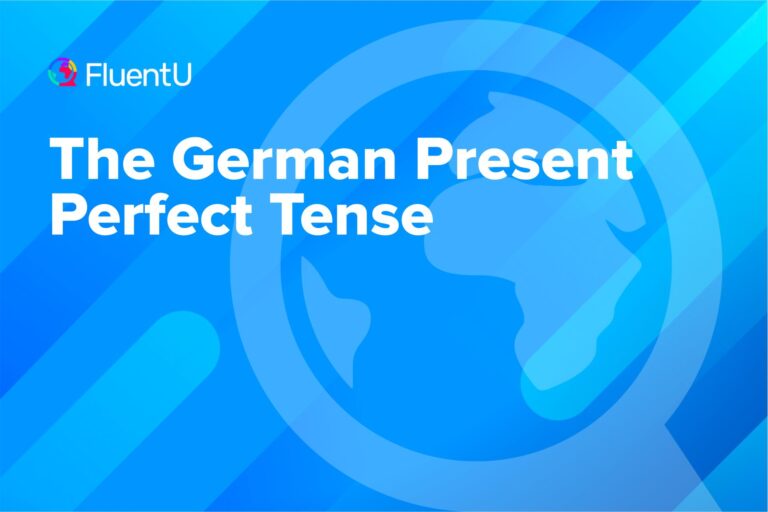
FluentU Language Learning
Spanish
English
French
Chinese
German
Japanese
Russian
Italian
Korean
Portuguese
English for Spanish Speakers
English for Japanese Speakers
English for Russian Speakers
English for Korean Speakers
English for Portuguese Speakers
English for Chinese Speakers
English for Italian Speakers
Educator
Spanish Educator
English Educator
French Educator
FluentU Company Updates
Reviews
Parts of Speech
Sentence Structure
Tenses and Conjugation
Tenses and Conjugation


Accusative German Exercises
Today’s quest, should you choose to accept it, is to tackle the accusative case. But to do this, you’ll have…
The German Past Participle
The past participle, known as the Partizip II, is a special conjugation of a verb used in the Perfekt (present…
The German Present Perfect Tense
If you’re struggling to perfect the German present perfect tense, or if you’ve just been avoiding it, this guide will…
The German Subjunctive
With the subjunctive, you can express your desires that—up until now—the indicative “I want” has made rude or boring. The…
The Genitive Case in German
It’s highly possible that in the course of your German studies, you haven’t yet learned the possessive case, also known…
German Declension Explained
If you’ve ever wondered why der Hund (the dog) sometimes turns into den or dem Hund, what those funny endings…
German Tenses
For an English speaker, learning German tenses can feel like entering a parallel universe. But don’t fret! Remember, English is…
German Infinitive: 5 Ways to Use It
If you’ve been learning German for more than a few weeks, you’ve probably already come across infinitives. The German infinitive…


